Generative AI, a groundbreaking frontier in artificial intelligence, is revolutionizing how we create and interact with digital content. By leveraging algorithms to generate new data that’s similar to but distinct from its training set, this technology opens up a myriad of possibilities across various fields.
From creating realistic images and text to synthesizing music and generating videos, the applications of Generative AI are vast and continuously evolving. This technology not only enhances creativity and efficiency but also challenges our understanding of originality and automation. In this guide, we’ll explore the diverse applications of Generative AI, delving into how it’s shaping industries, transforming creative processes, and influencing the future of technology and human interaction.
1. Content Creation
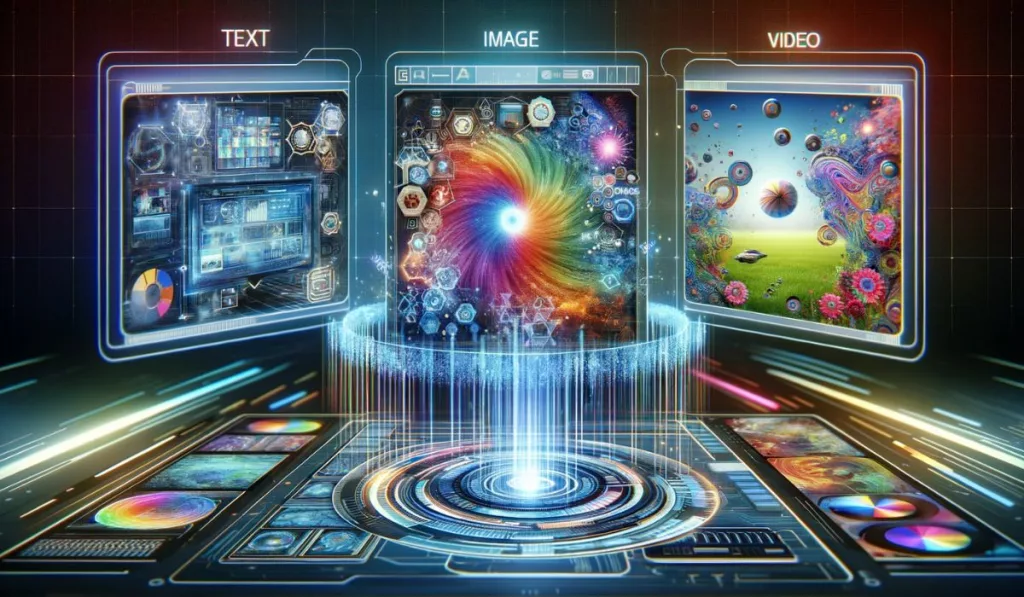
Generative AI is making significant strides in the realm of content creation. It can produce original written content, from articles to poetry, by learning from vast amounts of text data. In graphic design and visual arts, AI algorithms are used to create images and designs that are indistinguishable from human-made art. This technology is also transforming the world of video production and animation, allowing for the generation of realistic scenes and characters with minimal human input.
The use of Generative AI in content creation not only saves time and resources but also opens up new avenues for creativity, enabling artists and creators to explore novel ideas and concepts that were previously unattainable or time-consuming to produce manually.
2. Personalization and Customization
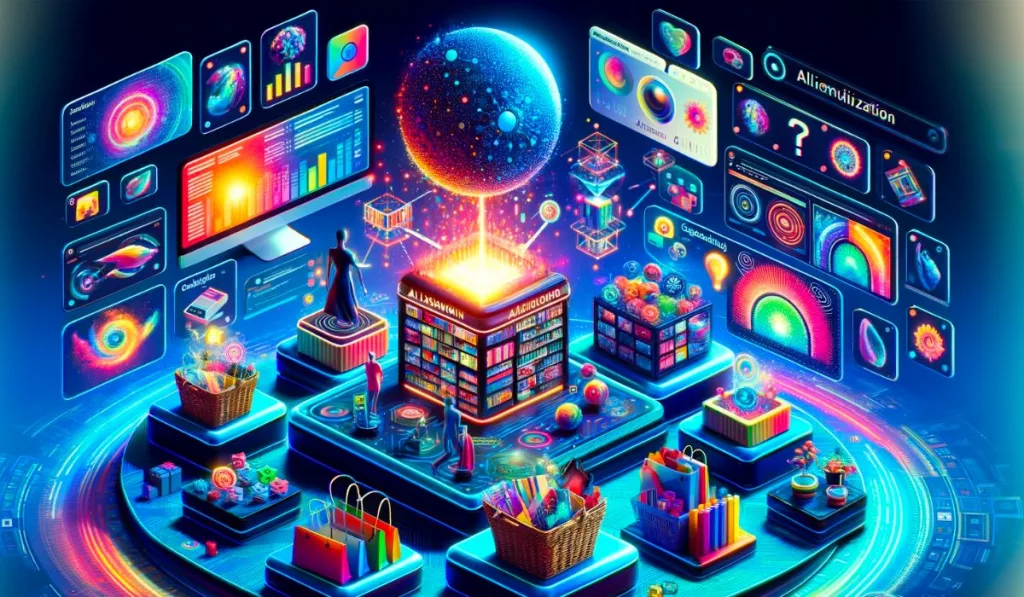
Generative AI is revolutionizing personalization and customization in various sectors. By analyzing individual preferences and behaviors, AI can tailor content, products, and services to each user.
For instance, in e-commerce, Generative AI can suggest products based on a customer’s browsing history and purchase patterns. In the entertainment industry, it can customize music playlists or movie recommendations. This technology enables a more personalized experience for users, enhancing engagement and satisfaction.
For a deeper understanding of how Generative AI achieves this, you can visit https://www.sap.com/products/artificial-intelligence/what-is-generative-ai.html. The ability of Generative AI to adapt to individual needs marks a significant advancement in how we interact with technology and consume digital content.
3. Enhancing Machine Learning Models
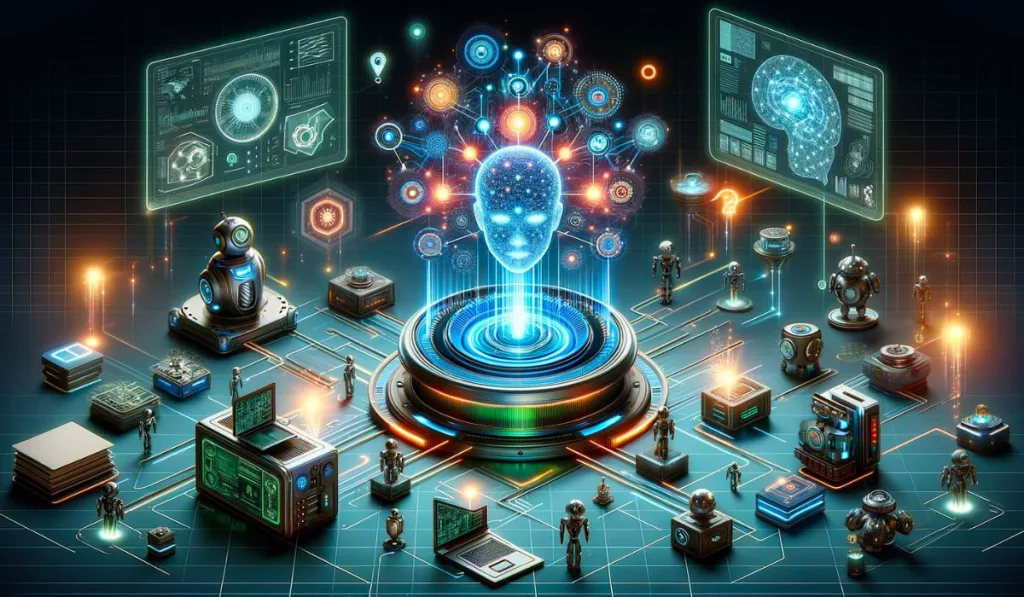
Generative AI plays a crucial role in improving machine learning models. It can generate synthetic data, which is especially valuable when real datasets are limited or sensitive, such as in healthcare or finance. By creating additional data, Generative AI helps in training machine learning models more comprehensively, leading to improved accuracy and efficiency in predictions and analyses.
This aspect of Generative AI is crucial for research and development, where access to extensive and varied datasets is often a limiting factor. Enhanced models result in better decision-making tools and predictive analytics, applicable in fields ranging from weather forecasting to personalized medicine. The ability to enrich data pools while maintaining privacy and ethical standards represents a significant advancement brought about by Generative AI.
4. Automation in Design and Prototyping
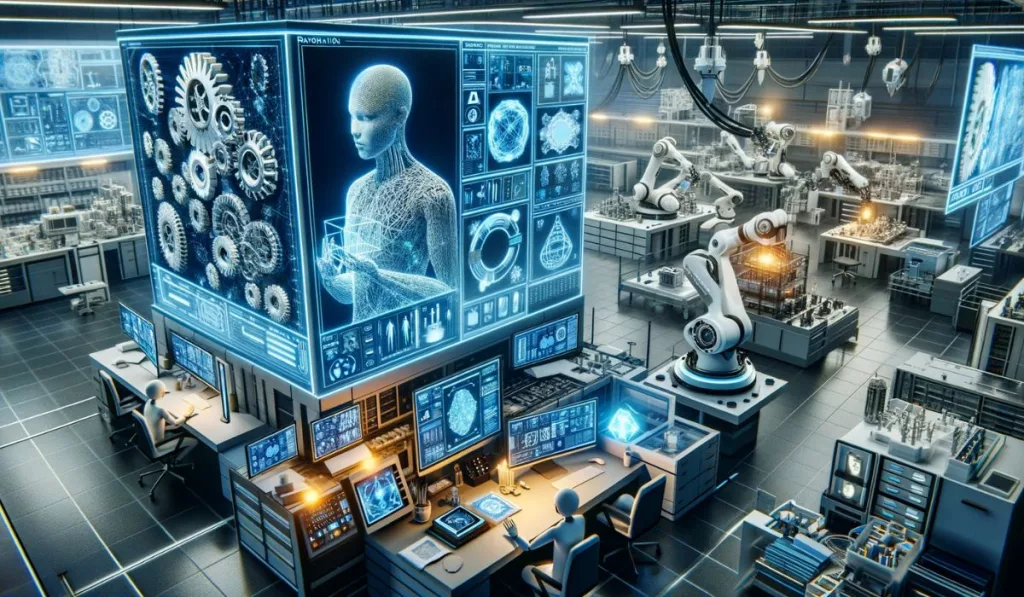
Generative AI is transforming the fields of design and prototyping, automating processes that were traditionally manual and time-consuming. In architecture and engineering, AI algorithms can generate multiple design variations based on specific parameters and constraints, allowing designers to explore a wider range of options and solutions quickly.
Similarly, in product design, Generative AI can create numerous prototypes, each tweaked to meet different requirements or preferences. This automation accelerates the design process, reduces costs, and enhances creativity by enabling professionals to focus on refining and improving designs rather than creating them from scratch. The integration of Generative AI in design and prototyping signifies a major shift towards more efficient, innovative, and cost-effective development processes.
If you want to upgrade the logo of your agency then check the list of Best Logo Design Agencies in USA.
5. Advancements in Entertainment and Gaming
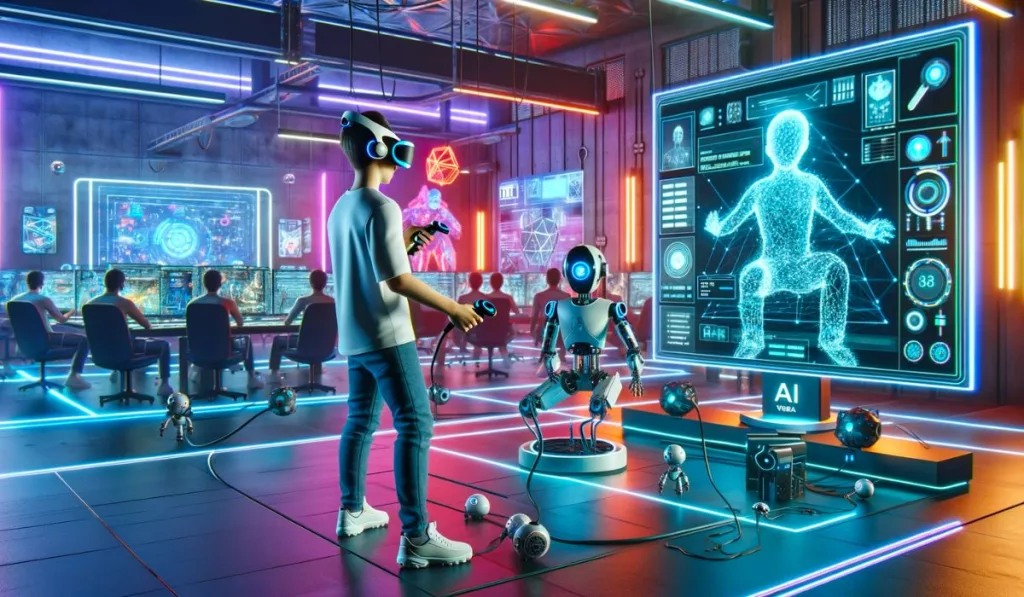
Generative AI is significantly impacting the entertainment and gaming industries by introducing new levels of interactivity and creativity. In gaming, AI algorithms can generate dynamic game environments and non-player character behaviors, creating unique and unpredictable gaming experiences. This not only enhances the realism and engagement of games but also provides players with a highly personalized experience. The role of generative AI in Sports can also be not underestimated.
In the film and music industries, Generative AI assists in composing music scores and even scripting. It can generate creative content, from background music to plot ideas, offering artists and creators new tools for innovation. The application of Generative AI in entertainment and gaming pushes the boundaries of traditional content creation, offering more immersive, engaging, and personalized experiences to audiences.
You might like to read AI Chatbot vs. Conversational AI: What’s the difference?
6. Research and Data Analysis
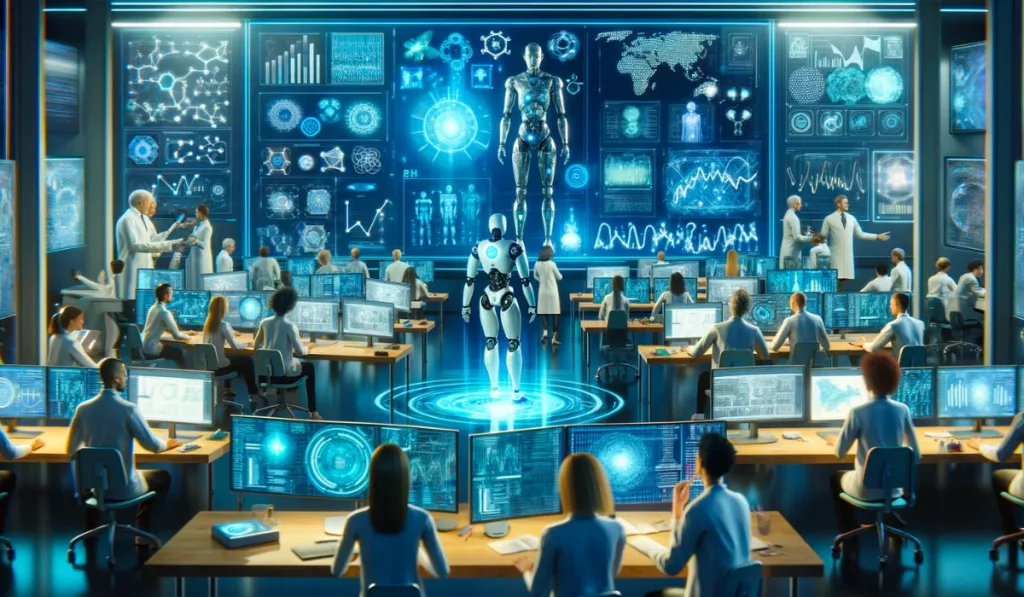
Generative AI is proving to be a valuable tool in research and data analysis. It assists researchers in synthesizing large datasets to uncover patterns and insights that might be difficult to discern manually. In scientific research, Generative AI can predict molecular structures and reactions, accelerating drug discovery and material science developments.
In the field of social sciences, it helps in analyzing complex social data, providing deeper insights into human behavior and societal trends. By automating the data analysis process, it allows researchers to focus on interpretation and application of their findings. The ability of Generative AI to process and analyze vast amounts of data efficiently makes it an indispensable tool in advancing knowledge across various disciplines.
7. Language Translation and Interpretation

Generative AI is revolutionizing language translation and interpretation, breaking down communication barriers in an increasingly globalized world. Advanced AI algorithms can now understand and translate languages with a high degree of accuracy, making international communication smoother and more accessible. This technology is not limited to textual translation; it extends to real-time speech interpretation, aiding in live conversations and meetings.
The impact of Generative AI in language services extends beyond mere translation, as it captures nuances and context more effectively, fostering better understanding and collaboration across different cultures and languages. This advancement is crucial in a world where effective communication is key to both personal and professional interactions.
Conclusion
In conclusion, Generative AI’s diverse applications, from content creation to language translation, are profoundly reshaping multiple industries and facets of daily life. Its ability to generate new, unique data and automate complex processes is not only enhancing efficiency but also spurring innovation across various fields. As Generative AI continues to evolve, it promises to unlock even more possibilities, driving forward creativity, research, and personalized experiences. Embracing this technology’s potential will be crucial in navigating an increasingly digital and interconnected world, where AI’s influence is becoming ever more significant.










Leave a Reply